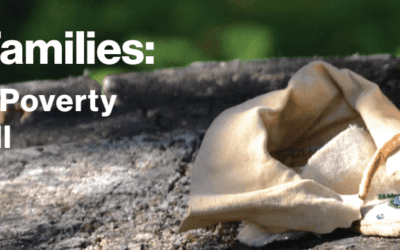Research Update: A Basic Income for Alberta

Note: this is excerpted from the May 2020 edition of our “Research Update” publication. The Edmonton Social Planning Council, in collaboration with our volunteers, strives to provide stakeholders and community members with up-to-date reviews, prepared by our volunteers, on recently published social research reports and publications.
Reviewed by Sandra Gosling
This is a summary and critical review of the Parkland Institute’s report, A Basic Income for Alberta. Co-authors are Alison McIntosh, a research manager at Parkland Institute with experience on health and social policy issues, including basic income, and Rebecca Graff-McRae, a post-doctoral social science and humanities research fellow at the University of Alberta.
The Parkland Institute’s report provides a summary and analysis of the complex sides of the basic income debate, and is an illustration of what a basic income policy could look like in the province of Alberta. Basic income can be defined as “an income paid by a political community to all its members on an individual basis, without means test or work requirement” (Van Parijs, 2004, as cited in McIntosh & Graff-McRae, 2019, p. 7). The report is laid out by first outlining the various definitions and conceptualizations of a basic income, then exploring the different policy schemes for implementing a basic income, deconstructing the political debate, and providing a critical analysis of how basic income could and could not work in Alberta.
What makes this report unique to other literature is that it goes beyond contextualizing the left and right political divisions of basic income to provide critical analysis of the changing complexities of poverty, the nature of work, and policy directions for social and economic institutions. It moves away from the attitude that basic income is a simple solution to complex social and economic issues.
It is made clear throughout the report that while basic income has distinct and measurable benefits for those who are disadvantaged, it does not address the structural causes of income insecurity. Additionally, the realities of Alberta’s political sphere are included to reflect practical considerations for such a policy. The authors deconstruct the policy framework of basic income to demonstrate that it is only the first step to eliminate poverty and support those at risk. It is honest in its limitations, especially with consideration to the other causes of inequality such as gender, race, (dis)ability, geography, age, and citizenship status.
One limitation of the report is that it fails to consider the current administrative complexities of the welfare system and the future administrative complexities of implementing a basic income. While it recognizes that the current schemes of social and income assistance have not been sufficient for meeting at-risk individuals or household needs, it does not attempt to analyze why that is. Research outside of this report demonstrates that the current welfare system stigmatizes individuals, limits autonomy, and invades privacy; issues that a basic income would propose to eliminate (Pereira, 2014). A basic income—whether managed federally or provincially—would also require complex administrative coordination and consolidation of existing programs, which the authors of this report fail to address.
In summary, this is a comprehensive analysis of basic income that addresses the many benefits to individuals and households, as well as the many risks to policymakers and public services. It demonstrates that the future of basic income policy is largely dependent on future ideological shifts to re-conceptualize economic prosperity and the role of government and individuals before it could ever be implemented successfully.
Publication Source: McIntosh & Graff-McRae. (2020). A Basic Income for Alberta. Parkland Institute. Retrieved from: https://www.parklandinstitute.ca/a_basic_income_for_alberta
Additional References: Pereira, R. (2014). Economic security in the twenty-first century: How guaranteed annual income (GAI) confronts multiple imperatives. Home Oeconomicus, 31, 1, p. 159-179.
Volunteer Research Reviewer: Sandra Gosling is a socio-economic researcher, with special knowledge and interest in evaluating the social and economic benefits and consequences of policy decisions related to a variety of issues including industrial development, poverty, human trafficking, child welfare, and Indigenous rights.



